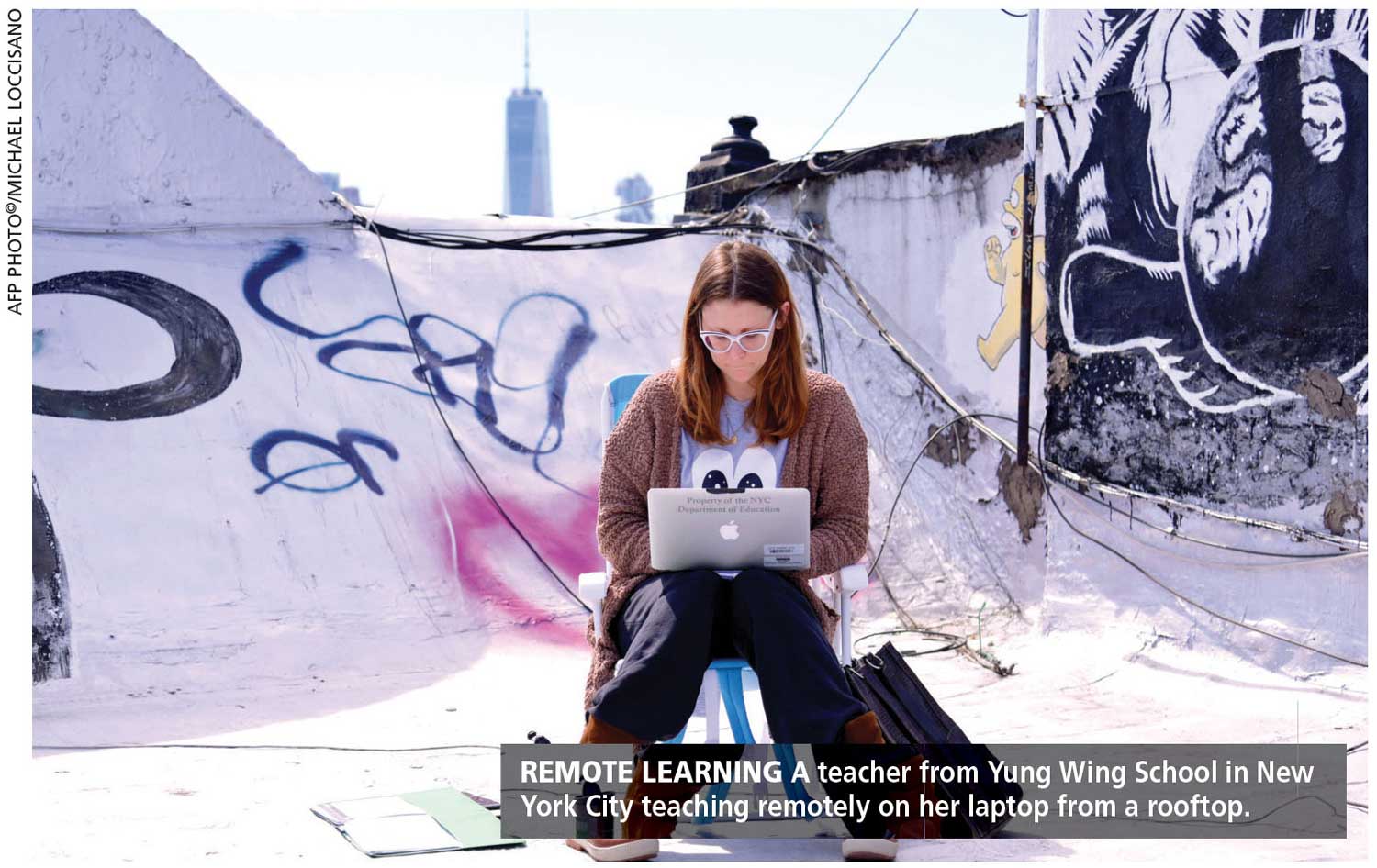GEN Z PERSPECTIVES
LEARNING REVOLUTION IN MOTION
Dona Senara explores the learning trends demonstrated by her generation

As a cornerstone of societal progress, educational methods and approaches to learning undergo transformative changes with each passing generation. Without exception, Generation Z has influenced education modes as digital natives, self-directors, visual collaborators, and experiential and multicultural learners.
Growing up in a digital age with unprecedented access to information, Gen Z’s education and learning trends have diverged from those of previous generations.
They are often referred to as ‘digital natives’ due to their lifelong exposure to technology. This immersion has fundamentally altered their learning preferences as they’re accustomed to accessing information instantly through the internet.
This leads to a preference for interactive and multimedia-based learning materials – including e-books, online tutorials and educational apps. These are indispensable tools in their learning journey.
This shift has prompted educators to bring technology into classrooms to foster a more engaging and relevant learning environment.
Unlike previous generations, Gen Z is embracing self-directed learning. They actively seek information based on their interests and curiosity, blurring the lines between formal education and personal exploration.
This trend has led to the rise of platforms offering massive open online courses (MOOCs) and micro-learning modules that enable individuals to tailor their learning experiences.
Generation Z’s preference for personalised learning is challenging traditional one-size-fits-all educational models, and prompting institutions to adopt more flexible and adaptable curricula.
Zoomers’ exposure to visual content on platforms such as YouTube and Instagram has cultivated their affinity for visual learning; they thrive on visual aids, infographics and videos, which enhance comprehension and retention.
Additionally, their participation in online communities and social networks has nurtured a collaborative approach to learning. Virtual study groups, peer feedback and collaborative projects are instrumental in their education.
Gen Z exhibits a strong desire for practical skills that can be directly applied in real world scenarios. They value experiential learning opportunities such as internships, apprenticeships and hands-on projects. This pragmatic orientation reflects their aspirations for career readiness and financial independence.
As a result, educational institutions are under pressure to bridge the gap between academic knowledge and practical skills to ensure that graduates are well-equipped for the workforce.
Thanks to the internet, Gen Z has a broader global perspective than any previous generation. Due to their exposure to diverse cultures, viewpoints and world issues, there’s an interest in multicultural learning.
Moreover, Generation Z values cross-cultural understanding, and is drawn to educational content that promotes empathy and global citizenship. This trend compels educators to incorporate global perspectives into their teaching materials and curricula, to be able to foster a more inclusive and aware generation.
The education and learning trends of Gen Z are a reflection of the rapidly changing world they inhabit. Their technological fluency, self-driven approach, visual orientation, practical mindset and global awareness mark a departure from the conventional educational paradigms.
As educators and institutions adapt to these trends, they have a unique opportunity to harness the potential of the innovative learning styles of digital natives.
Yet, the challenge lies in striking a balance between embracing these trends and preserving the essential aspects of education such as critical thinking, creativity and a deeper understanding of foundational concepts.
This generation’s integration with technology while enhancing access to information can also lead to over-reliance, shorter attention spans and concerns about misinformation.
Bridging the digital divide is crucial to ensuring equitable access while balancing personalised learning with core curriculum requirements. This is a dilemma for educators, as is the need for new assessment methods.
Teacher preparedness and maintaining a sense of community in online learning environments are ongoing challenges. Educators must also strike a balance between practical skills and critical thinking. Furthermore, the rapid pace of technological change necessitates the constant adaptation of teaching methods and infrastructure.
Addressing these issues requires collaboration between educators, policy makers and society. It is necessary to create an educational environment that capitalises on trends of the generation while mitigating potential drawbacks.
As Gen Z continues to redefine education, society must provide it with the tools and guidance it needs to thrive in a constantly evolving learning landscape.




